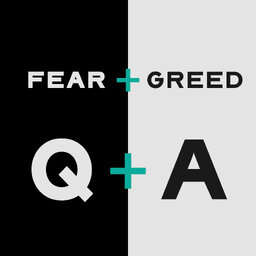Interview: Coping, but stressed - how Aussies are handling the cost of living crisis
Mortgage payments, rent, power bills, food, insurance, petrol - you name it, it seems to be getting more expensive. And all of that has a real impact on consumer confidence and spending.
Kate Browne, Head of Research and Insights at Compare Club, talks to Sean Aylmer about Compare Club's latest Bill Stress Index, and what it reveals about Australian spending habits.
Compare Club is a supporter of Fear and Greed
In 1 playlist(s)
FEAR & GREED | Business News
Daily business news for people who make their own decisions, with business journalist Sean Aylmer an…Social links
Follow podcast
Recent clips

BHP pips CBA to lead the ASX; hottest property in 2026; $Trump tanks
16:53

Q+A: Could this be the answer to Australia's rental crisis?
11:16

Afternoon Report | ASX hits three month high
04:52
 FEAR & GREED | Business News
FEAR & GREED | Business News